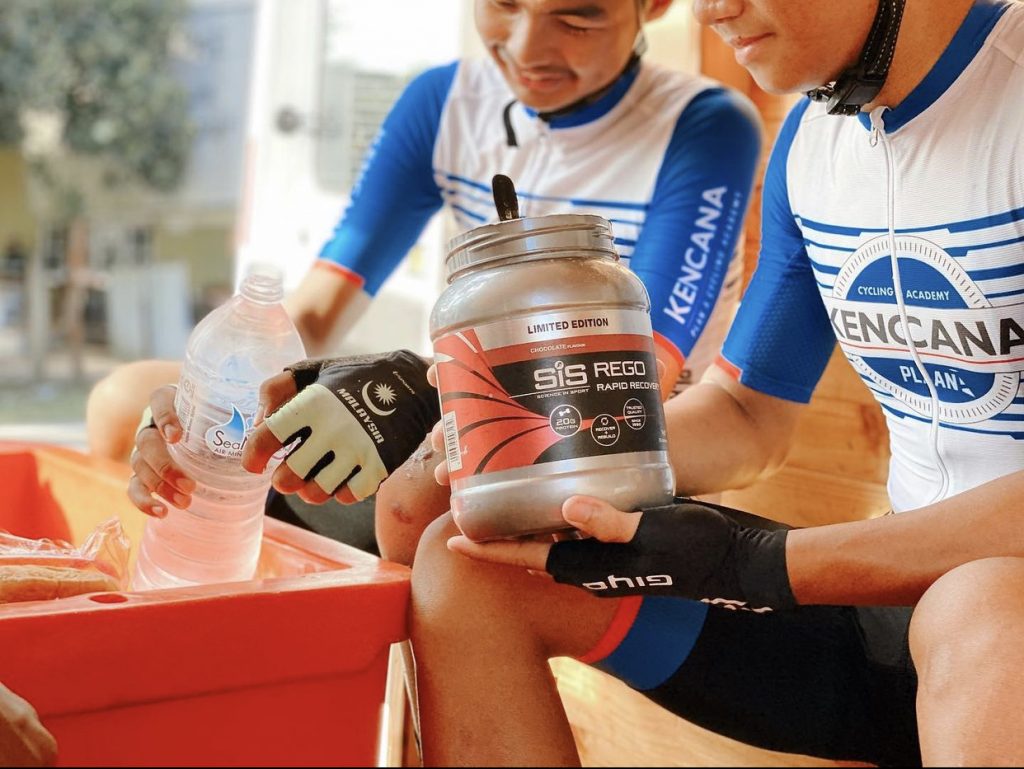Sports nutrition is the foundation of the success of sports performance.
Becoming an athlete requires proper training and conditioning, and most importantly, optimal nutrition. Sports nutrition is essential for peak performance.
Not only a well-planned training program is the key to improve athletic performance, but maintaining adequate nutrition and hydration also ensures effectiveness when training for an athlete.

How does nutrition play a big role in sports?
Sports nutrition supplies the right food, energy, nutrients, and fluids to keep the body well hydrated and functioning at peak levels.
A sports nutrition diet may vary day to day, depending on specific energy demands and athletes’ sex, body mass, body requirements, or the sports they are doing.
With proper sports nutrition incorporated into your training, it helps injury prevention, to overcome existing health problems, or reach specific fitness and body composition goals.
What are the basic nutrients athletes need?
The main source of energy comes from the food we eat – carbohydrates, protein, fats, and fluids.

Carbohydrates
Carbohydrates are an important fuel source.
Carbohydrates are necessary to meet the demands of energy needed during your training. The body breaks down carbohydrates to glucose, which is then utilized for energy or converted to glycogen and stored in the muscles and liver to fulfill later energy needs. During sub-maximal exercise, carbohydrates in the body are the major source of fuel.
Energy bars, gels, or sports drinks can be used to supply sodium and glucose. Other electrolyte beverages are also essential for athletes during the training. However, the proportions of carbohydrates that you require will vary depending on both the intensity and type of sports.
Therefore, consuming an adequate amount is fundamental to prevent muscle fatigue.

Proteins
Proteins are made up of a chain of amino acids and are essential to every cell of the human body.
Amino acids are used as the building blocks for the different tissues, enzymes, and hormones that the body needs to function. It is important for muscle building and repair that occurs after exercise.
Protein plays a key role in muscle repair and growth. It can be used as a source of energy and is critical for building new muscle tissue. If you’re taking part in resistance training, your body will require additional protein.
Whey protein is a by-product of the process of making cheese from milk. It contains high protein and fewer fats and carbs. Whey protein gets digested easily by the body providing quick energy and nutrition. It also provides a rapid rise in amino acids that may help increase muscle mass and strength, and may also reduce appetite and promote fat loss.

Fats
Fat is also a significant contributor to energy needs.
Fat also plays a key role in helping athletes support healthy hormone levels. Healthy sources of fat, also known as unsaturated fats include nuts, nut butter, avocados, olive, and coconut oils.
All fats, including saturated fatty acids, have important roles in the body. The fatty acids in the fats assist in building the cell membranes and regulate hormones. Fatty acids also have many important functions in the body, such as improving heart health and reducing the risk of cardiovascular disease. If you don’t eat a lot of oily fish, taking a fish oil supplement helps you get enough omega 3 fatty acids.

Water
Athletes should ensure they maintain adequate hydration. Water is a great choice of fluid for athletes to help performance and prevent dehydration.
Water loss during an athletic event varies between individuals. Sweat loss can be tracked by measuring weight immediately before and after exercise.
Limited amounts of caffeine have been shown to enhance athletic performance. However, athletes consuming sports drinks or energy drinks should be aware of caffeine levels. Caffeine acts as a diuretic and may cause the need to urinate during competition.
Why is sports nutrition so important?
- Sports nutrition provides energy for training.
It is extremely important for athletes to meet their daily caloric demands.
- Sports nutrition aids in recovery and reduces the potential for injury.
Proper nutrition is vital to optimize post-training recovery. Optimal nutritional intake helps replenish endogenous substrate stores and facilitates muscle damage repair and reconditioning.
- Sports nutrition improves body composition.
Body composition measurements are used to develop training plans aimed at reducing body fat, achieving training outcomes, and general health while maintaining or increasing lean body mass. The demand for sports nutrition requires that athletes maintain standard levels of body composition.
- Sports nutrition affects an athlete’s ability to train and compete to their best.
To perform at their best, athletes must ensure they consume the right foods and the right volumes of food. In addition, they must consider the timing of their food and fluid intake. The athlete’s diet should enable the athlete to achieve optimal body weight and body fat levels for performance.




